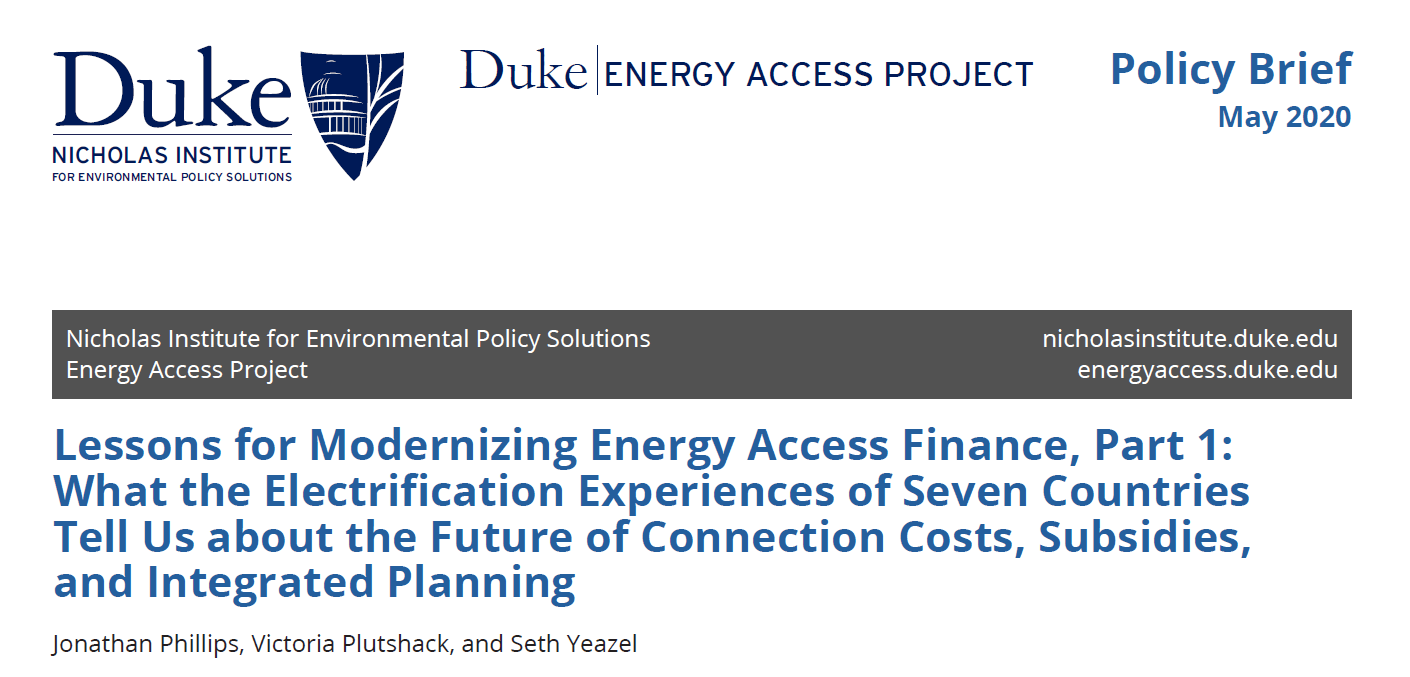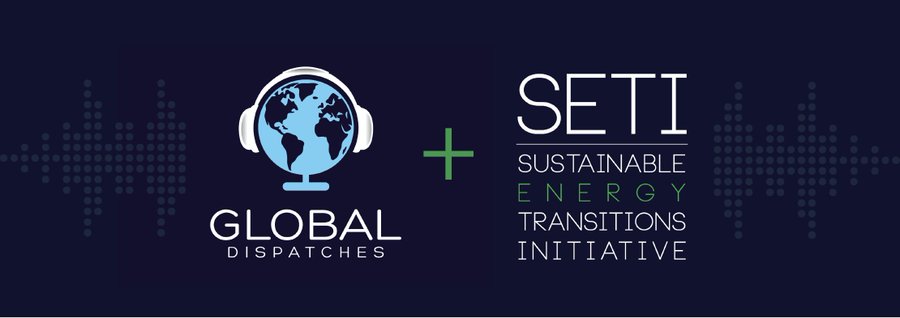In the News

Other News
Global Assessment of Electricity in Healthcare Facilities
The Global Assessment of Electricity in Healthcare Facilities provides a comprehensive update on the status and key actions needed for providing reliable, modern energy to health-care facilities in low- and middle-income countries.
Benefits of Action to Reduce Household Air Pollution (BAR-HAP) Tool
Two of our team members, Marc Jeuland and Ipsita Das, assisted in developing the WHO Benefits of Action to Reduce Household Air Pollution (BAR-HAP) Tool, which is a planning tool for assessing the costs and benefits of different interventions to address the global burden of disease associated with cooking-related household air pollution.
Powering Empowerment
Experts from over 10 time zones and 35 countries came together May 12-13th for our first ever virtual workshop – Energy Access through a Gender Lens!
Harnessing Data Analytics to Accelerate Energy Access: Reflections from a Duke-RTI Convening on Data for Development
This document presents a vision and summary of how development and scaling of new tools, and application of big data analysis principles, have the potential to transform energy systems planning, policy design and implementation, and investment decisions.
EAP receives Catalyst Grant!
Congratulations to the seven winners of the Nicholas Institute Catalyst Grants! We are delighted that this year’s winners includes EAP’s own Rob Fetter, who will be leading ‘Mapping Solar Photovoltaic Arrays Using Unpiloted Aerial Vehicles.’
An off-grid energy future requires learning from the past
The more things change, the more they stay the same. EAP’s latest in the Brookings Future Development blog explores the electrification experiences of seven countries, their program costs and the subsidies required to bridge the gap between the cost of providing last-mile electricity and what poorer customers are able to pay.
New Publication: Lessons for Modernizing Energy Access Finance, Part 1
Countries facing electricity access challenges today have more options and potential electrification pathways than ever before, but the initial cost of connecting new rural customers remains an expensive proposition. This brief explores the successful rural electrification experiences of seven case countries—Brazil, Chile, Laos, Peru, South Africa, Thailand, and Tunisia—looking specifically at the cost of connections and how subsidies and public financing were deployed to address the affordability challenge and facilitate energy access.
Sustainable Energy Transitions Initiative: Podcast
SETI is pleased to announce a 6-episode podcast partnership with Global Dispatches, the United Nations Dispatch’s official podcast, hosted by Mark Goldberg.









